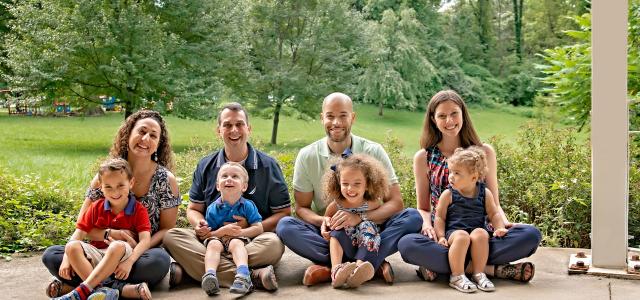
What's in Your ESG? Maybe Plant-Based Innovation
"From a global standpoint we all seek to be healthy; financially healthy, our body healthy, our planet healthy and certainly healthy for our families (particularly if we have little kids or [just] kids). Anything you can do to make yourself financially healthy and have that grow in a great way; to make yourself physically healthy, to make your mind healthy; these things you do for yourself I believe they radiate out. If you're not working in the industry like I am and you don't have big budgets for media campaigns, I think start with yourself and grow from there."
- Elysabeth Alfano, CEO, Vegtech Invest
Join me and VegTech Invest CEO, Elysabeth Alfano as we explore why plant-based innovation is an important part of sustainable investment portfolios. We answered the following questions:
- What she means by "What's in Your ESG?"
- Why does food have such a large effect on climate?
- How do you describe "Plant-Based" innovation?
- Where are we now on the plant-based innovation curve?
Jason Howell Company is an independent, family wealth management firm that believes in empowering people to overcome financial imposter syndrome.
Jason J. Howell, CFP®, CPWA®, CSRIC® and Douglas W. Tees, MBA, CFP® have spent a lot of time in the Washington, DC area, and are aware that many people who are first generation wealth suffer from a kind of "financial imposter syndrome." Successful entrepreneurs are always looking over their shoulder; government contractors worry about the next contract; former Capitol Hill staffers privately wonder if they should "feel bad" for the money they now make. Imposter syndrome is common among people who work for the many corporate headquarters based in this area as well. These feelings get in the way of properly managing wealth. We empower them to get organized, build a team of advisors and make decisions.
Our typical "first generation wealth" families include dual income parents who work, save and have just the right amount of fun. They trend a little older - Baby Boomers (born 1946 - 1964) and Gen-Xers (born 1965 - 1980) - but we're starting to see more Millennials (born 1981 to 1996) who don't want to wait until it's too late. They earn impressive incomes and have accumulated a good bit of savings. As bona fide experts themselves, they expect fiduciary expertise from people they hire. They are just not sure about the "big box" brokerage firms that advertise one thing and seem to do another.
First generation wealth accumulators realize that they:
- Need to “do something” with the cash in their checking/savings
- Need an investment strategy for “up” and “down” markets
- Need a plan to mitigate market, credit, inflation, and political risks
- Need to start tax planning instead of just tax paying
- Need to be sure they are choosing the right work benefits
- Need to reduce financial miscommunications between partners
- Need to separate business finances from personal finances
- Need to plan for money while alive and for what happens after death

